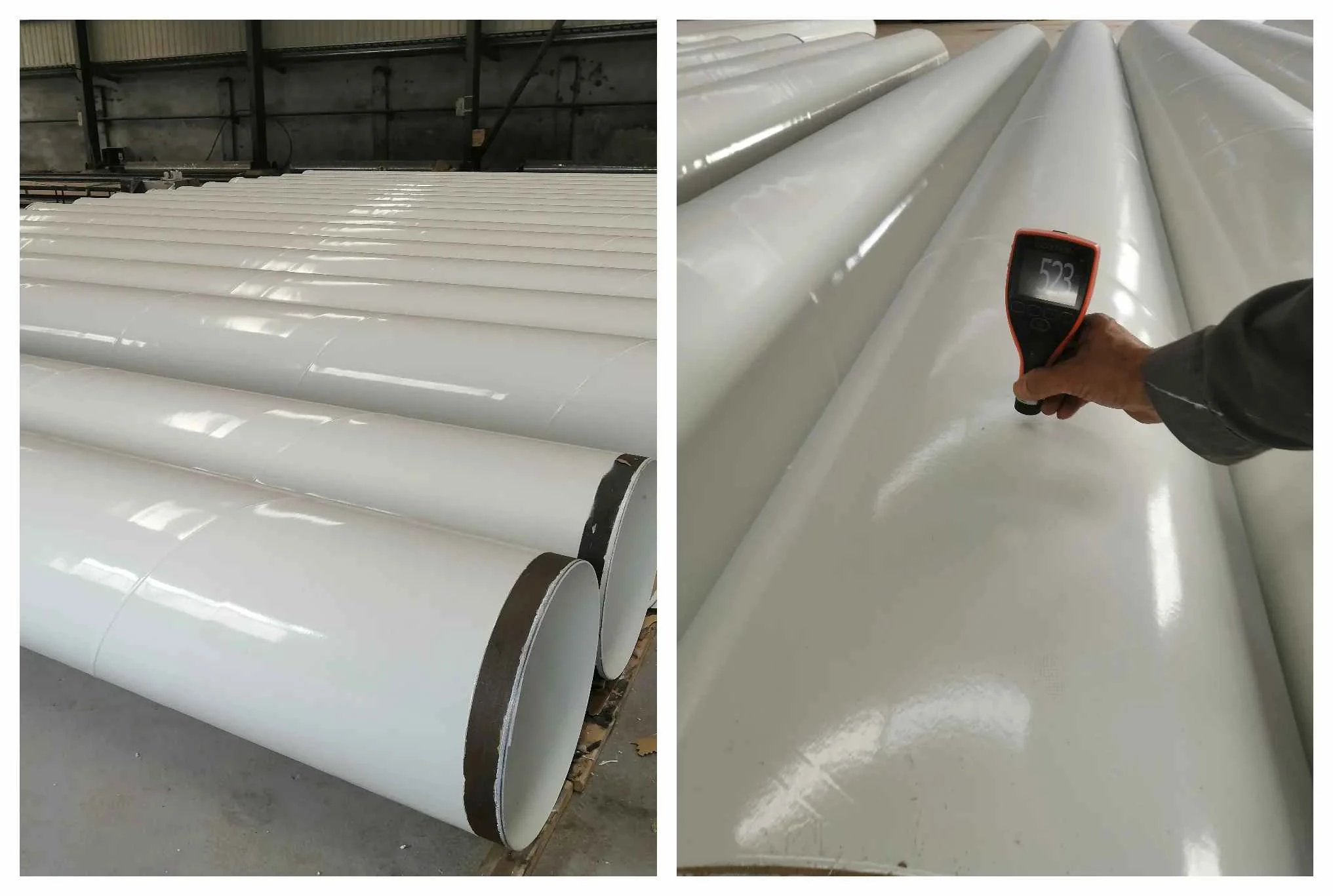Coating of steel tubes in sewage pipes
Steel pipes are widely used in wastewater treatment engineering, due to their high strength, good performance, and relatively low cost. However, there are some issues with steel pipes that need to be considered in order to ensure the successful operation of a wastewater treatment project. One of these issues is the surface coating of the steel pipe, which should be carefully considered in order to minimize corrosion and other problems.

Surface coating is an important part of a wastewater treatment project, as it can protect steel pipes from corrosion and damage. The most common type of coating used on steel pipes is paint or other type of resin. This coating can be applied either as a single layer or as a multi-layer system, in which different types of materials are used to provide additional protection. The choice of coating should depend on the environment in which the pipe will be used, as different types of coatings may provide better protection in different environments. The selection of a coating should also take into account the cost and the durability of the material, as well as the expected life expectancy of the coating.
Adhesion
The adhesion of the coating to the steel pipe is an important factor to consider when selecting a coating. The adhesion of the coating should be strong enough to ensure that the coating does not fail due to abrasion or other factors. It should also be possible to remove the coating if it is necessary, without causing any damage to the steel pipe. The adhesion of the coating to the steel pipe should also be checked regularly during the course of the project in order to ensure that the coating is still effective.
Impact Resistance
The impact resistance of the coating is another important factor to consider. The coating should be able to withstand the impact of wastewater and other substances in the environment. The impact resistance should also be able to withstand mechanical forces, such as those generated by pumps, valves, and other equipment used in wastewater treatment.
Chemical Resistance
The chemical resistance of the coating should be considered when selecting a coating for steel pipes. The coating should be able to withstand the various chemicals present in the wastewater, such as acids, bases, and other compounds. The chemical resistance of the coating should also be able to withstand the changes in the pH of the wastewater over time.
Temperature Resistance
The temperature resistance of the coating is also important to consider. The coating should be able to withstand the extremes of temperature in the wastewater, as well as changes to the temperature due to the operation of pumps, valves, and other equipment. The temperature resistance of the coating should also be able to withstand changes in temperature due to seasonal variations.
UV Protection
The coating should also be able to provide UV protection, as UV radiation can cause corrosion and other damage to steel pipes. The UV protection of the coating should be able to withstand the UV radiation in the environment, as well as the UV radiation generated by pumps, valves, and other equipment.
When selecting a coating for steel pipes in a wastewater treatment project, it is important to consider the surface coating, adhesion, impact resistance, chemical resistance, temperature resistance, and UV protection of the coating. The choice of coating should depend on the environment in which the pipe will be used, as well as the cost and durability of the material. It is also important to regularly check the adhesion of the coating to the steel pipe. By considering all of these factors, it is possible to ensure the successful operation of a wastewater treatment project.






